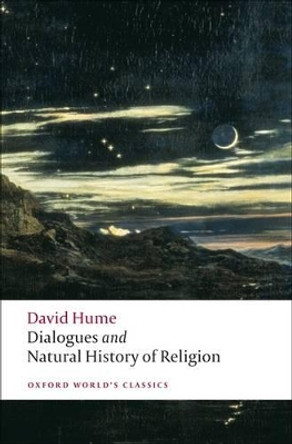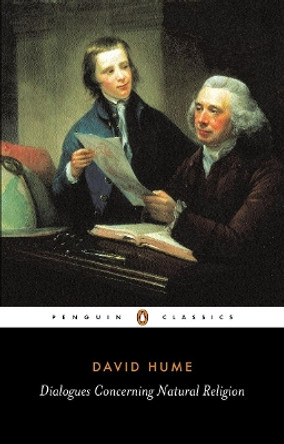Hume's Dialogues provide a classic exposition and critique of the famous 'Argument to Design', the attempt to prove the existence and properties of a designing intelligence or God from the phenomena of Nature, notably the functional contrivance of the parts of plants and animals. As such, it raises questions of central interest in both philosphy and theology. Philosophers will be concerned with the implications of strict empiricism for our claims to know anything of the existence and properties of God, and with it the associated threat of scepticism. Theologians will be concerned about the possibility of natural theology and the problematic relation between natural theology and the claims of revealed religions such as Christianity. This book will follow the layout of the Reader's Guide Series In 'Context', Pyle will explain the philosophical and theological background against which the book was written, including what is meant by 'natural' religion introduce hte reader to Enlightenment views on religion. 'Overview of Themes' will address the question of why Hume chose to write in dialogue form, sketch out the views of the three characters and introduce the questions they address. The 'Reading the Text' section will take take the 12 parts of Dialogues in turn and guide the reader throuhg the issues thrown up. Discussion points and questions will focus thinking and encourage the reader to engage with the primary text. 'Reception and Influence' will include discussion of Hume's influence on Kant and hte debates about Darwinism.
This text guides the reader to a clear understanding of the classic of Enlightenment Philosophy and Theology, Hume's DialoguesAbout the AuthorAndrew Pyle is Senior Lecturer in Philosophy at the University of Bristol, UK.
Reviews"This account of Hume's personal position has considerable plausibility, and the judicious way in which it is articulated by Pyle is representative of the overall merits of his book. Pyle consistently manages to combine clear exegetical guidance with a thoughtful presentation of alternative interpretations of Hume's intentions, and he also pulls off the feat of providing straightforward clarifications of specific argumentative moves in the Dialogues while developing in the background a unifying interpretation that will interest even people engaged in scholarly research on Hume's thinking about religion." -Alan Bailey, Philosophy in Review
Book InformationISBN 9780826475688
Author Dr. Andrew PyleFormat Paperback
Page Count 164
Imprint Continuum International Publishing Group Ltd.Publisher Bloomsbury Publishing PLC
Weight(grams) 220g









